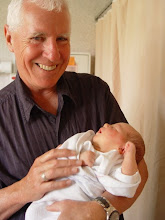Bay News Article-29 July 2009.
British Columbia Principals’ and Vice Principals’ Conference, University of British Columbia July 6-10.
I felt that it was a real privilege to be invited, along with five other New Zealand Principals to present two workshops at the British Columbia Principals’ and Vice Principals’ Conference in Vancouver at the start of our school holidays. A major theme of the conference was on how teachers in British Columbia could lift the achievement of their indigenous students, and our contribution was to talk about our experience with the programme “Te Kotahitanga”, introduced into our schools through the work of Professor Russell Bishop and Mere Berryman from the University of Waikato. Te Kotahitanga is a programme designed to lift the achievement of Maori students in our schools and is finding increasing support from the Ministry of Education and the Government as the initial 12 schools (of which Mount Maunganui College was one), has now been increased to 48 secondary schools throughout the North Island.
It has been interesting to compare the relative tasks ahead for the two countries, and thankfully New Zealand has considerable advantages to ensure that we are successful in raising the achievement of Maori students. While we readily admit there are huge challenges for us in New Zealand, relative to what we experienced in Canada, we can draw on our students greater knowledge of their culture, their language and iwi connections. Early programmes, initiated by Maori, such as Kohanga Reo (language immersion at pre-school level), have seen a revival of the language to a point where there is now a demand for full immersion Maori language secondary schools. In our schools there is greater recognition of Maori culture, and we use many Maori protocols and procedures in our ceremonies throughout the year. This is not to say we are ok in New Zealand, we still have a long way to go, but we are a lot further ahead in recognising the importance of language, culture and whanau in successfully educating Maori students.
In Canada, in one area there could be up to 13 or 15 different “bands” (tribes) that have to be acknowledged within a region, each with their distinctive language and customs, and 3 or 4 different “bands” within a school. Isn’t it interesting that the tribes are even referred to as “bands”, and not an equivalent word such as “iwi”? In an experiment similar to that of Australia, from the late 18th Century up until 1984, young indigenous children were taken from their homes and placed in Residential Schools where they were refused contact with their families, their culture and their language. These children stayed in these schools to be trained in trades, sewing and housekeeping tasks. The effect of this programme was to effectively wipe out their language, take away their identity and place many of them in a position of being regarded as second-rate citizens. Only now are they trying to claw back over a century of lost ground and start to rebuild the recognition and understanding of the importance of culture in educating their children.
When I listened to the story of one principal, who was proudly recounting how she has, after many years finally had a carving completed for the front of her school, the only visible sign that there are indigenous students in her school, I realised what a mammoth task they have ahead of them. There are many parallels throughout the world of what European society has done to destroy indigenous cultures and New Zealand was certainly in there with these countries, especially in the first half of the 19th Century. Luckily we were less successful than some countries and we are now seeing a very strong Maori renaissance.
Hopefully by sharing our experiences with a programme like Te Kotahitanga, we have made a very small contribution to assisting the British Columbia teachers in their efforts to lift the achievement of their indigenous students, and reaffirmed our commitment to Maori students in our schools.
Subscribe to:
Post Comments (Atom)



1 comment:
Great reading your stuff on your visit.Vancouver is a great city and sounds if you experienced more of the area than I did. It's better when you have good company. Looking forward to catching up soon.
Post a Comment